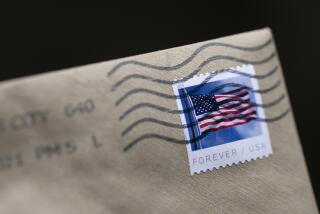Liability Suits--the Money Tree : Jurors’ Generosity in Awards Digs Deep Into All Our Pockets
- Share via
Under the U.S. court system, juries are supposed to be representative of the American people--and probably are. Which means that we have a serious problem of economic illiteracy on our hands.
That’s a sweeping indictment, but those who are inclined to challenge its validity should take a look at the sky-high judgments that are being returned these days in personal- and product-liability suits--frequently in cases where negligence is nebulous, to say the least.
The juries handing out multimillion-dollar awards in liability cases are no doubt acting from generous impulse. They sympathize with the plaintiff, and want to help. So why not stick it to the doctor, corporation or city government allegedly responsible for the injury? After all, they have a lot of money and, in any event, are covered by insurance.
Such thinking reflects an abysmal ignorance of reality. In the final analysis big liability awards are paid not by the inept surgeon or negligent businessman--or even by his insurance company--but by consumers and taxpayers. That is, by every man, woman and child in the country.
There is nothing wrong with the principle embodied in liability law--or with how the principle was applied until recently.
If a negligent bus driver has an accident that maims a passenger, the injured passenger obviously deserves compensation. When a design or manufacturing flaw causes a fatal auto accident, the manufacturer must be held accountable. The same holds true for a physician who misdiagnoses a serious ailment, a pharmaceutical manufacturer who hides what he knows about a new drug’s dangerous side effects, an airline that cuts corners on safety.
It does not follow, however, that a system intended to help victims of negligence should be turned into a money tree for zealous lawyers and not-always-deserving clients without regard for the effect on society as a whole.
The volume of litigation has reached avalanche proportions. In federal courts alone, product-liability suits doubled from 1978 to 1984. And nobody sues for a couple of thousand dollars any more; court judgments now average more than $1 million. Awards of $5 million are now common, and much higher awards are far from rare.
The courts have broadened the theory of “strict liability” to the point that businesses and their insurers are frequently hit with enormous judgments even in cases where fault has not been proved, where products were made to government specifications--and where the plaintiff’s own actions contributed mightily to his injury.
There was the pole vaulter, for example, who received $1.6 million for injuries sustained when he missed the mat. The body-builder who entered a foot race with a refrigerator strapped to his back--and was awarded $1 million for injuries suffered when a strap slipped. The man who collected $1.7 million on the ground that his heart attack was caused by the excessive force required to start his power lawn mower.
Granted, these are horrible examples. Unfortunately for us all, however, the sock-it-to-them jury mentality that they reflect is all too prevalent.
Liability insurers suffered underwriting losses of $21 billion in 1984, their worst year since 1906. Their response, of course, has been to raise premiums, to make adequate coverage all but unattainable to whole classes of customers and, in some cases, to get out of the liability-insurance business altogether.
The National Assn. of Manufacturers reports that product-liability premiums among member companies have risen 200% to 500%. Premiums for bus and subway operators are up 300% to 1200%. Similar rate increases have occurred in the medical profession. Over the past 10 years, fatal accidents in general aviation have declined 40%, but insurance costs have skyrocketed to the point that nobody wants to make small planes anymore.
The Economist of London reports that Swiss Re, which handles almost a quarter of the world’s reinsurance, will no longer touch American liability business. The uneasiness of Lloyds of London, another big reinsurer, was reflected in the chairman’s statement that “virtually all our losses come from the United States, which generates 12% of our income.”
The effects are being felt not only by those who have been hit by big court judgments. Businesses that have never been sued for a dime find themselves paying exorbitant premiums, which they pass on to their customers because somebody else in their business was hit by a big suit. Many, unable to get adequate insurance at all, simply stop providing the product or service in question.
There is a baleful effect on the overall economy. U.S. exporters find themselves at a disadvantage in competing with foreign firms that are not encumbered by similarly high insurance burdens. A lot of small-town officials, unwilling to risk being held personally liable in suits against the town, are no longer willing to serve. The effect on living costs, while impossible to measure, is obviously great.
The typical company, for example, operates an employee medical-care plan whose costs are being inflated by successful suits against doctors and hospitals and the resulting increases in malpractice-insurance premiums. The price of every piece of machinery that the company buys includes a rising allowance for the suppliers’ liability insurance. The cost of every item delivered by truck is inflated by the truckers’ ballooning insurance costs. All these extra costs are passed on to your typical company’s customers--all of us.
Aside from the plaintiffs themselves, the only people coming out ahead are the trial lawyers, who collect an average of $7 for themselves to every $6 paid out to claimants.
Efforts are under way in Congress to bring order out of chaos, but nothing sensible is likely to emerge unless the American people get it through their heads that when they read about a $5-million or $10-million liability judgment, the jurors are being generous at their expense.
More to Read
Inside the business of entertainment
The Wide Shot brings you news, analysis and insights on everything from streaming wars to production — and what it all means for the future.
You may occasionally receive promotional content from the Los Angeles Times.










